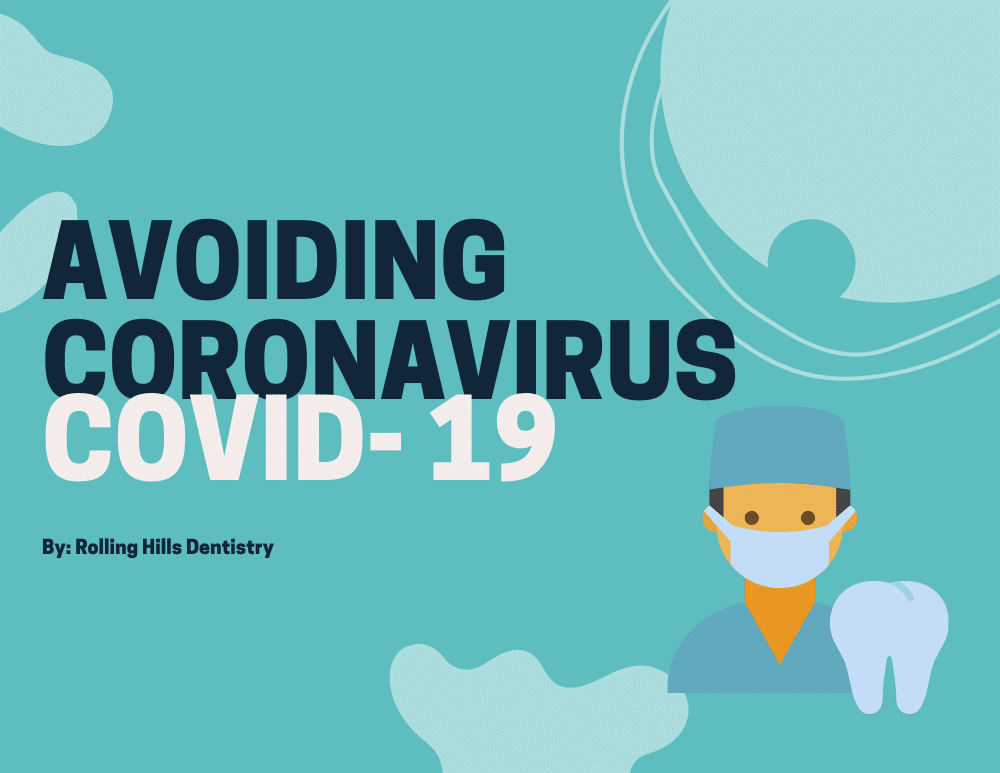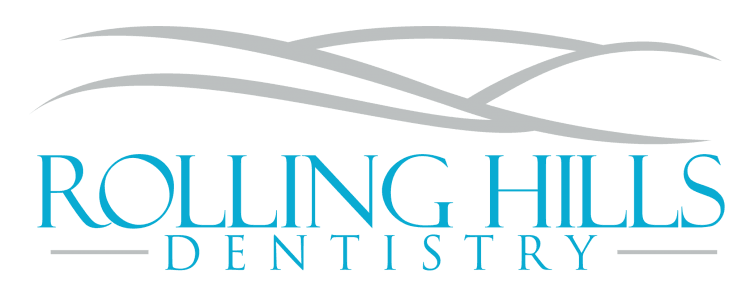Coronavirus Tips from Rolling Hills Dentistry
Our team at Rolling Hills Dentistry has been diligent in managing patient safety during these unprecedented times. We have put a ton of guidelines and protocols into place for our dental team to practice and follow. In this post, we’ll go over a few facts from the CDC and some tips on how to avoid contracting COVID-19.
Take care of yourself
One of the best steps you can take to prevent contacting COVID-19 is to start prioritizing the health of your body. There are so many choices you can make to better your immune system and fight off illnesses. Here are some very basic tips for keeping yourself in top shape:
Eat healthily – Try to include fresh fruits and vegetables in your diet. Give your body the fuel it needs to naturally fight off illness. It’s important to consume the nutrients and vitamins your body needs to stay healthy.
Stay hydrated – Drink plenty of water. Fluids help to flush out toxins and fight infection.
Get enough sleep – This helps your immune system locate and destroy bacteria and viruses while restoring your bodily systems. 6-8 hours is what’s typically recommended!
Exercise regularly – Your physical strength and endurance is a key factor in your overall health. Go for a walk, jog, or hike. Your heart is a muscle, so it’s important to strengthen it!
Prevent the spread of germs
Wear a mask when out in public. It’s been proven to help reduce the spread of COVID-19.
Avoid contact with those who are sick.
Wash your hands after sneezing, coughing; using the restroom; eating, and touching things in public. Use soap and wash for at least 20 seconds. If soap and water aren’t available for washing hands, use a hand sanitizer that contains at least 60% alcohol.
Clean and disinfect frequently touched objects or surfaces with household spray or wipes.
Avoid touching your face.
Wash your glasses and sunglasses.
Wipe down your cell phone with an alcohol wipe or a damp cloth from time to time to kill bacteria build up.
Use a paper hand towel or tissue when touching public doors, faucets, etc. It’s important to avoid direct contact with surfaces as much as possible!
Don’t share food utensils and drinkware with others.
Politely decline handshakes.
What should you do if you’re sick?
According to the CDC, symptoms of COVID-19 are fever, cough, and shortness of breath. However, those with underlying health conditions are at greater risk and should check with their healthcare provider regarding monitoring symptoms.
Seek prompt medical attention if your illness is worsening (for example – difficulty breathing). Note: call your doctor or other healthcare professional before coming in for an appointment or urgent care.
The CDC also advises that if you are mildly ill, you can isolate at home and separate yourself from other people and animals. Stay in a specific room and if possible, use a separate bathroom.
If ill, a face mask is advised to avoid the spread of germs.
Keep your hands washed.
Sanitize all household surfaces and commonly touched items daily (phones, remote controls, keyboards, tablets, bedside tables, doorknobs, countertops, bathroom fixtures, etc.).
For more information on the coronavirus (COVID-19) visit the Centers for Disease Control and Prevention: https://www.cdc.gov/coronavirus


